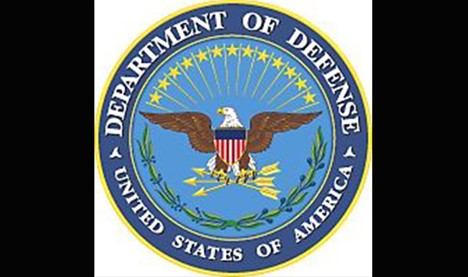In a resurfaced video clip from May 2019, Vice President Kamala Harris expresses a troubling vision for the U.S. Department of Justice, contemplating its potential use as a tool against speech considered unfavorable by the government. Speaking at the NAACP’s annual dinner, she emphasized her desire to empower the DOJ to actively combat “extremism,” which she associates with online platforms spread of hateful rhetoric. This rhetoric raises concerns regarding the potential establishment of a government-driven definition of appropriate speech, effectively likening her stance to authoritarian governance. Harris’s comments mark a stark contrast to her campaign persona, suggesting a willingness to pursue a more aggressive approach to enforcing perceived societal norms through governmental oversight of social media platforms.
Simultaneously, significant developments within the U.S. military highlight an alarming shift in civil-military relations as the Department of Defense has authorized its intelligence components to assist state and local law enforcement with the potential for lethal action against American citizens. Under Directive 5240.01, military engagement is permitted when requested for emergency situations, with the directive outlining various scenarios where the use of lethal force could be justified. Critics view the timing of this directive as particularly troubling, coinciding with a period of heightened political tension and widespread civil unrest expected during an election season. There is growing concern that state power could merge with military capability to quell dissent, particularly against citizens deemed as having extremist views.
This climate of increasing surveillance and control extends into social media, where federal agencies are known to have collaborated with platforms to censor information that contradicts the government’s narratives. This tactic effectively sidesteps First Amendment safeguards by outsourcing censorship responsibilities to private entities. Observers warn that this establishes a dangerous precedent, as individual freedoms, particularly speech, become subject to surveillance and regulation, reminiscent of repressive regimes in other countries. The past and ongoing actions in the U.S. serve to illuminate a broader trend toward curtailing civil liberties under the pretext of ensuring national security and public order.
The government’s ambitions may lead to the implementation of biometric digital IDs for Internet access, effectively curtailing anonymous expression online. Under such a system, individuals would likely be “scored” based on their compliance with government narratives, diminishing the space for political dissent. The chilling implications echo experiences in countries like the UK and Canada, where political dissent has become increasingly criminalized. Activists argue that while the U.S. has so far avoided the mass arrests seen elsewhere, the groundwork for similar actions is being laid, and vigilance is needed to protect civil liberties that could otherwise erode.
As globalist agendas gain traction, there is an urgent call to protect the First Amendment, as its loss could precipitate the collapse of all other rights codified in the Bill of Rights. For many Americans, the recent trajectory of government action raises fears of losing foundational freedoms, such as gun ownership. The interconnectedness of these issues underscores the critical need for citizens to remain alert and proactive against policies that threaten democratic principles and personal rights. As history demonstrates, once rights are compromised, the chances of restoration become increasingly slim.
In light of these developments, many turn to faith for strength and guidance, arguing that spiritual resilience is essential in combating the encroachment of authoritarian tendencies. The collective reliance on divine support is posited as a crucial element in confronting the challenges posed by globalism and government overreach. Observers encourage the public to engage actively with their constitutional rights, advocating for awareness and resistance against all forms of censorship that undermine civil liberties. Acknowledging the perilous environment currently faced, there is a shared belief that preserving freedom of speech is paramount to safeguarding the nation’s democratic foundation.

